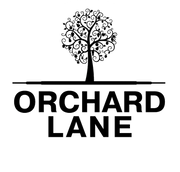
What Negative Impact does the Use of Artificial Food Coloring in Packaged Food Products have?
Artificial food coloring is a common ingredient in many packaged food products today. From brightly colored candies to boxed cereal, artificial food coloring is used to make food more visually appealing. However, it is important to consider the negative impact that artificial food coloring can have on our health. In this blog post, we will explore the potential dangers of artificial food coloring in packaged food products and the steps you can take to make healthier choices.
One of the main concerns with artificial food coloring is that it can cause allergic reactions in some individuals. These reactions can range from mild skin rashes to severe anaphylactic shock. According to the Center for Science in the Public Interest, food dyes such as Red No.40 and Yellow No.5 have been linked to allergic reactions in some people. Additionally, some artificial food colorings have been linked to hyperactivity in children, making it a concern for parents who want to provide healthy food options for their kids. A study by The British Medical Journal found that a combination of artificial food colorings and the preservative sodium benzoate, commonly found in soft drinks, can lead to increased hyperactivity in children.
Another concern with artificial food coloring is that it can be a source of harmful chemicals. Some artificial colors have been found to contain heavy metals and other toxic substances that can accumulate in the body over time. For example, Red No.3 was banned by the FDA in 1990 due to concerns over cancer risk, but it is still found in some food items. These chemicals can contribute to a host of health problems, including cancer and other chronic diseases.
Moreover, artificial food coloring does not add any nutritional value to the food and can be used as a cover-up for the lack of natural ingredients in the food. It is often used to enhance the appearance and color of food that may have become discolored due to processing or storage. Artificial food coloring is used in many processed foods that are high in sugar, sodium, and unhealthy fats, which can contribute to a host of health problems.
It is important to note that not all artificial food colorings are harmful and some are even approved by the FDA. However, it is always best to choose foods that are made with natural ingredients, as they are generally considered to be healthier options. Natural ingredients such as fruits, vegetables, and spices can be used to color food and add flavor, without the risk of harmful chemicals.
So, how can you make healthier choices when it comes to artificial food coloring in packaged food products?
One of the best ways to avoid artificial food coloring is to read the ingredient label on the packaging. Look for natural ingredients such as fruits, vegetables, and spices that are used to color the food. Avoid artificial food colorings, such as E - 122, E - 100, E - 120, and E - 151. Also, try to choose products made with whole, natural ingredients, such as whole grains, fruits, and vegetables.
Another option is to choose organic food products that are free from artificial food colorings, preservatives, and other harmful chemicals. Organic food products are made with natural ingredients and are free from harmful chemicals, making them a healthier choice.
You can also try making your own food at home. This way, you can control the ingredients that are used and avoid artificial food colorings. By making your own food at home, you can be sure that you are eating a healthy and balanced diet.
In conclusion, while artificial food coloring may make packaged food products more visually appealing, it is important to be aware of the potential negative impact that it can have on our health. Artificial food coloring can cause allergic reactions, and hyperactivity in children, and may contain harmful chemicals. So make sure to choose the ones that are free from these harmful chemicals.
Orchard Lane is an organic manufacturer of Fruit Jams, Low-Sugar Ketchup, and Pizza Pasta Sauce. The jams by Orchard Lane are made with fresh, whole seasonal fruit, with no artificial additives, no preservatives, and very little sugar making it a great option for health-conscious families looking to provide the best to their kids.